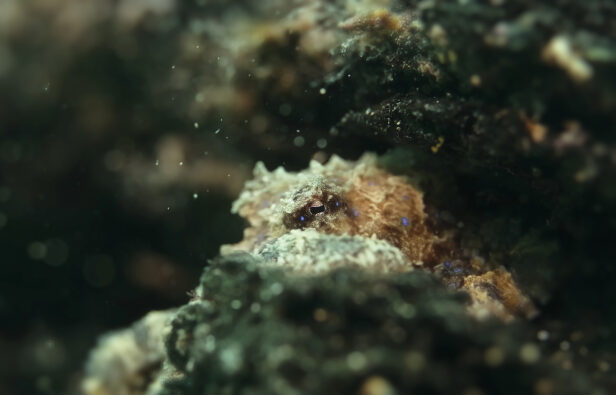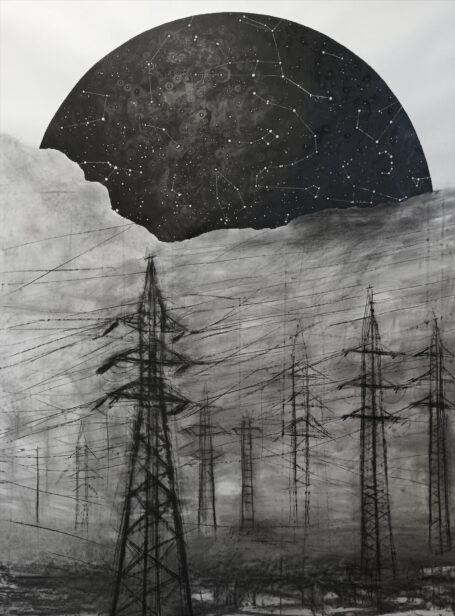Anna Fröman
THE WORLD HAS ENDED
The exhibition THE WORLD HAS ENDED at Forum Box shows works from three projects that process the topics of memory and loss. The projects Everything has changed here, Sortavala filmit and THE WORLD HAS ENDED are based on my own, my family’s and my relatives’ stories about the loss of a childhood home, a homeland in Karelia, and a father.
Sortavala filmit
Sortavala filmit, a project that deals with place, memory, loss, flight, home, homeland, borderland. From a box of pictures begins the story of my grandparents, who fled their hometowns of Sortavala and Ihala in Karelia during World War II. What was Finnish became Russian. The relatives who have visited the places after the war have seen houses left inhabited by others and houses levelled. The film mixes video, photography and animation. I travelled to Karelia in July 2016 with support in the form of a project grant from the Swedish Arts Council.
Everything has changed here
The project is about place and memory based on objects and rooms from a lost home in a series of paintings and a video work. The paintings represent interiors, exteriors, houses, and objects, which were left behind when leaving a home and which carry a memory. The works are about looking at the past, looking at what was, at a distance and close. About the relationship to the place and the artifact. The memory of a home and the objects and places attached to it trigger and recreate the memories and stories they hold. What matters is not objects or places per se, but the memories they consciously or unconsciously evoke.
The video with animated drawings is about the loss of a home where my father tells, shows and draws memory maps of what our home looked like. There you see the meaning of the memory rather than the actual object. You also see what you remember and how you remember, and how different it can appear to different people, and compared to the actual reality. When we left our home, I dreamt that we returned and lived in the house. I told my father about it:
– I dreamt that we went into our old house and continued to live there. My father replied:
– I also.
There is a longing to recreate a memory, a place. About trying to return to an inner and outer landscape, to a place that no longer exists. About searching for what was and which cannot be found.
THE WORLD HAS ENDED
This project is about thoughts of loss and of the fragile. I am interested in how memory and loss are expressed, of experiencing loss and change in the private and in society. About the time we all live in now. About losing a father. About when the world has ended. The project’s title was inspired by Evacuated for Life, a novel by Eeva Kilpi about Karelia, and the ending when a father is lost. “[…] but what did it matter now that the world had ended?” (Kilpi 1985:341).
The project took as its starting point one of my father’s shirts. The deeply private may create a personal and a universal address and expression. The project shows video works and paintings in oil depicting significant artifacts that are involved in major events in life and death.
Mari Mäkiö
Two camera eyes are watching

The exhibition Two camera eyes are watching focuses on a gaze between a human and an octopus and the encounter that happens through this gaze. The name of the exhibition refers to the similar eyes of these two distant relatives, eyes which are a result of two different evolutionary paths. The work invites the viewer to become the subject of the animals gaze and ponders what kind of thoughts this can provoke: Do we encounter the other animal as an individual or as a representative of their species? What kind of power relation is connected to the act of looking or to the language that we use when we talk about other animals? How are the face and eyes connected to the ways that we feel empathy?
The installation consists of video projections, a soundscape and an essay which the viewer can listen to with headphones or alternatively can be read in leaflet form.
The video material has been filmed in southern Australia in the natural habitat of the octopuses and the footage is filmed by underwater videographer Dean Spraakman. The videos are edited by Niklas Kullström and the soundscape is made by sound designer Jyri Pirinen together with the artist. The essay is translated by Kasper Salonen, read by Freja Bäckman and the
sound design is by Saku Kämäräinen.
Mari Mäkiö (b. 1982) is an artist living and working in Helsinki, Finland. She works mainly with installation, combining different media, from sound and video to ceramics and prints. An important part of her process is creating the artwork together with other artists as well as people outside of the cultural field. Recently Mäkiö has studied encounters between humans and other animals, and the experiences of separateness, togetherness and empathy entwined within these encounters. In her works, she also contemplates human beings as a species among others in the context of evolutionary biology and history. Mäkiö’s works have been shown in museums and galleries in Finland and abroad. In 2015 she graduated with a Master of Arts in Photography at Aalto University, School of Arts, Design and Architecture, Finland.
Jussi Pyky
Voitto luonnosta ja ihmisestä

Read more in Finnish.
Mediabox